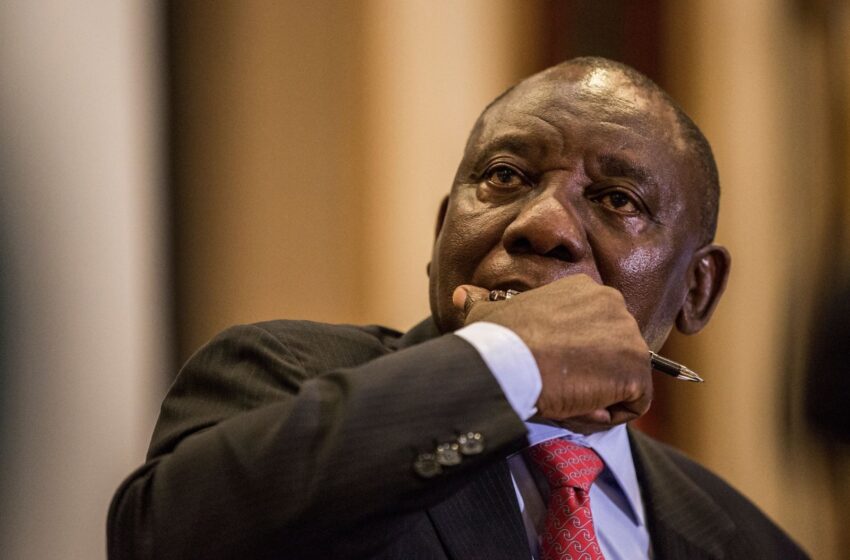South Africa to Azania? The name change proposal dividing the nation

South Africa President Cyril Ramaphosa
A controversial proposal to change the name of South Africa to the Republic of Azania has ignited a wave of public reactions, media coverage, and political discussions. Submitted by the African Transformation Movement (ATM), the proposal argues that the name “South Africa” is a colonial construct that must be replaced as part of the nation’s ongoing decolonisation process.
Below, we break down everything you need to know — from the historical context and political motivations to the practical implications and public response.
Why Is There a Proposal to Change South Africa’s Name?
The African Transformation Movement, a minority party in South Africa’s Parliament, formally submitted the proposal to the Parliamentary Constitutional Review Committee. The party argues that the current name, South Africa, reflects a directional label imposed during the colonial period rather than a true representation of indigenous identity.
According to ATM leader Vuyo Zungula, the name change is long overdue and should be aligned with the country’s efforts to reclaim African identity and dignity. They propose that the country adopt “Azania”, a name historically linked to liberation movements and used as a symbolic reference to pre-colonial African heritage.
What Does “Azania” Mean in South African Context?
The term Azania is not new to the continent’s political landscape. It gained traction during the anti-apartheid struggle and was often used by liberation groups as an alternative to South Africa. The name has pan-African roots, and while its exact origin is debated, it has long been associated with African resistance to colonial rule.
However, critics argue that Azania lacks wide national recognition today, and it may not resonate with the broader population, especially younger generations who were not part of the liberation-era discourse.
Political Reactions to the South Africa Name Change Proposal
The proposal has sparked mixed responses from political parties and analysts. While ATM and some decolonisation advocates see it as a bold and necessary step toward cultural restoration, opposition parties and civil society groups have dismissed the move as a distraction from more pressing national issues.
Critics also point out that changing the country’s name would require a constitutional amendment — needing a two-thirds majority in Parliament and extensive public consultation. Given the ATM’s limited representation and public resistance, the proposal’s chances of approval remain slim, but it has successfully pushed the issue into national discourse.
Public Sentiment: Majority Oppose Renaming South Africa
Public reaction to the proposal has been largely critical. According to various surveys and online polls, a majority of South Africans oppose the name change. Many view the proposal as costly, unnecessary, and poorly timed, especially considering the country’s ongoing struggles with poverty, unemployment, load shedding, and service delivery.
In previous cases of municipal renaming — such as Port Elizabeth becoming Gqeberha — public sentiment was also divided. This national proposal has amplified concerns about the financial burden and the risk of further social polarisation.
Cost Implications of Changing the Country’s Name
Changing the name of a country is not just symbolic — it comes with major administrative, logistical, and financial implications. If the proposal to rename South Africa succeeds, it would require a complete overhaul of passports, national IDs, signage, official documents, legal references, currency design, diplomatic protocols, and much more.
Critics warn that the cost to the taxpayer could run into billions of rands, at a time when the economy is still recovering from the impacts of COVID-19, rising inflation, and a weakened Rand. Opponents argue that such a move would divert funds away from essential services and development efforts.
Renaming in South Africa: A Broader Trend
This proposal is not an isolated case. Over the past few years, South Africa has witnessed a wave of place name changes, aimed at correcting colonial or apartheid-era references. Towns such as Port Elizabeth (now Gqeberha) and Grahamstown (now Makhanda) have undergone official renaming, often met with a mix of support and resistance.
While advocates of these changes argue they are vital for reconciliation and national healing, others believe that they should be accompanied by education and dialogue to avoid confusion and foster wider public support.
What Happens Next? The Path Forward
For the name change to progress, the proposal must first pass the Constitutional Review Committee, after which it would be debated in Parliament. If it garners sufficient support — a long shot, according to political analysts — it could proceed to nationwide public consultations and hearings, likely in early to mid-2025.
The final step would require a constitutional amendment, which demands the support of at least two-thirds of the National Assembly and six of nine provincial delegations in the National Council of Provinces — a politically uphill task for ATM.
Symbolism vs. Practicality in National Identity
The proposal to rename South Africa to Azania is about more than just semantics — it’s a reflection of ongoing tensions between symbolic decolonisation and practical governance priorities. While some see it as a necessary act of historical correction, others believe it could be a costly and divisive distraction.
As the debate continues to trend across social media and news platforms, it raises broader questions about how South Africans see themselves, their history, and their collective future.

